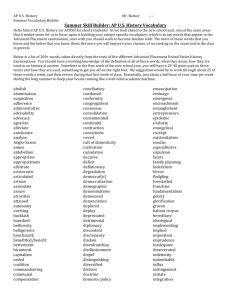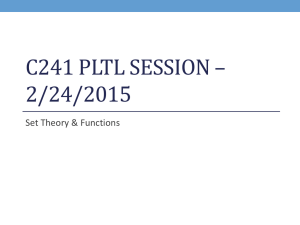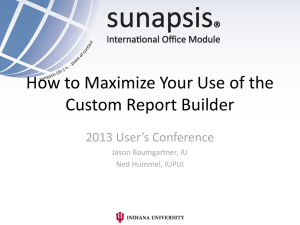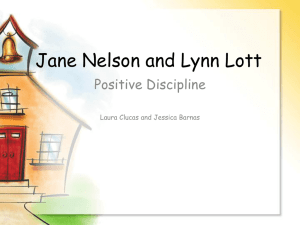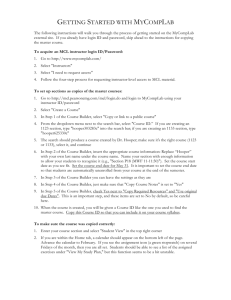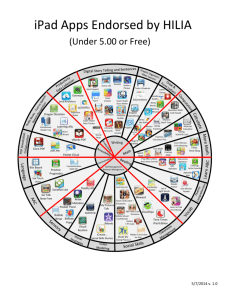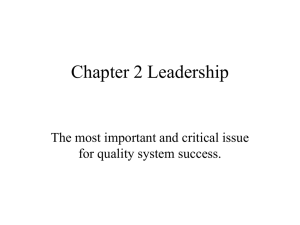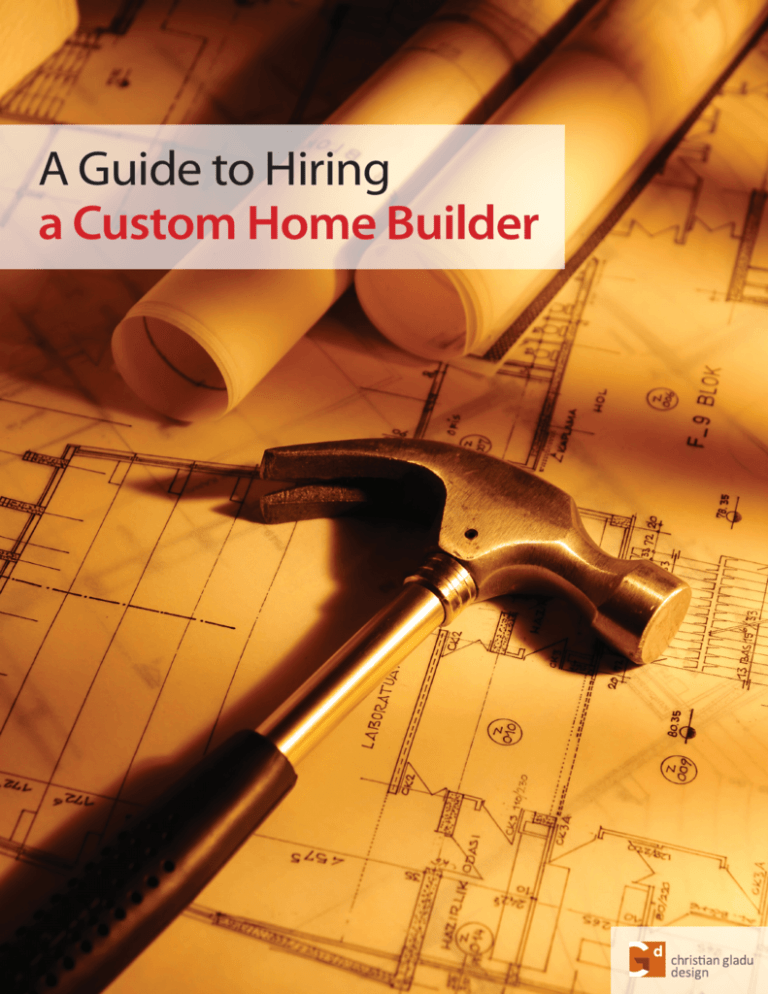
A Guide to Hiring
a Custom Home Builder
A Guide to Hiring a Custom Home Builder
Copyright © 2013
Published by Christian Gladu Design
2721 NW Nordic Avenue
Bend, OR 97701
All rights reserved. Except as permitted under U.S. Copyright Act of 1976, no part of
this publication may be reproduced, distributed, or transmitted in any form or by any
means, or stored in a database or retrieval system, without the prior written permission
of the publisher.
Visit our website at www.gladudesign.com
Hiring a Custom Home Builder at a Glance
1.What is the role of a custom home builder.................................2
2.When to hire a custom home builder...........................................3
3.How to find a custom home builder..............................................3
4.12 interview questions.......................................................................4
5.12 questions for references...............................................................5
6.Further research....................................................................................5
7.10 Red flags.............................................................................................6
1
A
Guide
to
Hiring
a
Custom
Home
Builder
By Christian Gladu
Building a new home is the largest investment most people will make in their lifetime, so it is important to get it right
the first time. Choosing the best custom home builder for you and your project is essential to its success. Remember,
you will likely be working together for 6-12 months; so as in any relationship, there needs to be trust and clear, honest
communication.
What is the role of a custom home builder?
A good custom home builder is an advocate for the homeowner as well as an integral and collaborative member of the
design team. They work with the homeowner and design to team to help establish a realistic budget for the project and
then monitor the cost and scope through the design and construction process.
Custom Home Builder Responsibilities:
• The home builder will involve and mange subcontractors during the design process so the design team can coordinate
key building systems in to the design of the home. A qualified custom home builder has advanced knowledge of all
building systems and is responsible to for making sure the subcontractors execute the work as outlined in the designer’s
plan specifications and to building code.
• The builder will contract with the owner for the construction price on the home and track all cost, submit pay request to
the bank and designer for approval, provide lien release waivers for all completed work, and prepare estimates and collect
money for approved change orders and owner initiated changes as outlined in the contract.
• Once the designer has filed for and
obtained the building permit the builder
will be the liaison between the building
inspectors, governing jurisdictions, and
the design team.
• The builder will be responsible for
managing and obtaining all approvals,
inspections, and the certificate of
occupancy.
• The builder will order, check, and accept
all building material and component’s
prior to installation.
• Upon completion, the designer will
review the project for any deficiencies. The
builder will work with the subcontractors
to resolve any issues and once this is
done, and the city has completed final
inspections and issued the certificate of
occupancy, the builder will deliver the
project to the owner.
• The builder will educate the owner
on the operation and maintenance of
the house and service the warrantee as
required by local jurisdiction.
2
When should I hire a custom home builder?
Our recommendation is that you hire your builder early in the design process so that they can help monitor and control the
cost of the project. Negotiate how the builder will be compensated up front and rely on the builder’s expertise to solicit
multiple bids from suppliers and subcontractors rather than bidding the project to multiple builders. A custom home requires
that you work to a budget to get the full value out of it. Custom homes are one of a kind, so it is wise to have the builder and
designer work on the project together as a team and leverage their collective knowledge and experience.
How do I find quality custom home builders?
If you have already hired a designer, they are the best resource for your search. Your design professional likely has existing
relationships with builders and first hand experience with their construction quality, communication skills, and business
practices. Other resources include:
• Local lenders can provide valuable insight into builders and their history of finishing projects on time and on budget.
• Reputable realtors have experience in the local custom home market and are an excellent source for home builder referrals.
• Internet searches can identify builders in your area and their websites can give you an overview of the style and quality of projects they are accustom to building.
• Your Local chapter of the National Association of Home Builders can also provide a list of qualified local builders.
Last but not least; friends, family, or colleagues who have recently completed custom home projects are reliable resources.
What do I look for?
A well-qualified home builder does not need to be a large flashy organization with fifty trucks on the road and a $100,000
marketing budget. The right builder needs to have the time, financial resources, interest, communication skills, organization
skills, and experience to build your new home. A custom home builder’s primary focus should be on building custom homes
not speculative homes, so that their services are tailored to your needs.
Reviewing the following 8 items when choosing a builder, will help you create a solid shortlist of candidates:
1.
2.
3.
4.
5.
6.
7.
8.
A current resume of projects.
Track record with projects of similar scale and detail.
Communication abilities.
Organizational skills.
Client references.
Time management skills.
Understanding and description of the work flow.
Whether they specialize in custom or speculative homes.
After performing this initial review and research, I recommend
that you reduce your list to a maximum of three builders and
set up interviews.
During the interview remember you are the customer and it
is important to not only listen to the achievements, but also
ask questions and observe whether the builder listens and
clearly and completely answers your questions. Ask yourself:
Is this someone I can work with? Does the process make
sense?
Make sure you are prepared to talk about your project. A
good builder will definitely ask questions like: What stage
of the process you are in? Do you have a design? Have you
established a budget? Do you have financing in place?
My recommendation is that you answer these questions as
honestly and openly as possible. The more viable your project
is the more interest and expert advice you will receive from
the builder.
Below I have provided twelve questions that you should
ask potential builders during an interview. The answers to
these questions should illustrate their communication style,
understanding of the project, and desire to be involved.
3
12 Interview Questions:
1. Are you willing to work with my designer during the design process to ensure we are creating
a home that meets our budget?
2. What means and methods will you use to determine the exact cost of my home?
3. How are you compensated for your pre-construction services?
4. Are you comfortable building the style and quality of home that we expect?
5. Who will supervise the construction of my home and how often will my project be under direct supervision?
6. May I meet the project manger or project superintendent who will be supervising my project on a daily basis?
7. How will questions and concerns be addressed during construction?
8. How do you qualify the competency of the subcontractors who will work on my project?
9. In the event that there are changes to the design or unforeseen conditions that result in extra cost, what process do you use to communicate the these changes to the owner and designer?
10. How long do you anticipate the construction of this project will take?
11. How are you compensated for your work?
12. How do you service your warranty once the construction is complete?
There is a lot of information to track in the construction of a custom home, so it is important that the builder has a clear and
organized system to track all aspect of the project.
1.
2.
3.
4.
5.
6.
7.
8.
The builder should be able to provide you with the following documents in order to
illustrate in detail their processes and methods:
A sample contract and proposed method(s) of compensation.
A sample budget and explanation of how monthly billings are tracked, invoiced, and paid.
A sample draw request to a lending intuition and description of process.
A sample lien release and description of your rights under state and county law.
A sample construction schedule illustrating construction timeline, projected cash flow, milestones, and key decisions to be made on a project.
A sample change order request and description of process.
A sample warranty.
A sample operation and maintenance manual.
Upon completion of the initial interview ask the builder to provide you with a referral list of three past clients and two currents
clients. Contact the clients and set a time to meet, hear their stories, and get answers to your applicable questions. If possible
visit past clients’ houses or at least observe them from the outside.
4
12 Questions for References:
1. Were your original estimates
accurate?
2. Was the project on time?
3. Was the project on budget?
4. Did the builder ask for
decisions in a timely manner?
5. Were the finances clear and transparent?
6. How did the builder react in stressful situations?
7. Did the builder communicate the
schedule clearly?
8. What role did the builder take once the project began?
9. Were there other key individuals that worked for the builder that you would request 10. if you were building again?
11. How has the builder responded to callbacks?
12. Was the project clean and organized?
13. Were there subcontractors on the project that you would strongly recommend or avoid?
Further research
References do not stop with customers; it is imperative to research the builders credentials and standing with the State
Contractors Board and the Better Business Bureau. I recommend clients ask the builder if they hold or have held contractor
licensees in any other states in the last ten years and if so I recommend clients research their standing in those states.
All builders are required to carry insurance and bonds so research the requirements set forth by the State Contractors Board
and ask the contractor to provide a proof of insurance and bond prior to signing a contract. If there has been a claim or
incident this does not mean this is a bad contractor but you do need to evaluate the nature of the claim and decide if you
are willing to move forward.
Trade and supplier references also offer a good way to find out about your builders standing in the profession. Call key
suppliers and sub-contractors and ask about their payment history and what it is like to work with the builder.
Your lending institution will require your contractor’s financial information before approving him as an approved builder.
Make sure your builder is financially solvent and check the credit rating agencies. Make sure you understand the lien laws in
your state and verify that your lender is collecting the lien releases from the subcontractor as funds are being released.
Have an attorney versed in construction law and contracts review the proposed agreement and edit the contract to meet
your needs and protect your investment. Make sure you understand the contract and are comfortable with all sections.
Contracts are a two way street, so don’t sign anything you are not a 100% clear on or amenable to.
If you are building your house from cash or without a conventional construction loan, hire a private inspector to verify that
the labor and materials being billed each month have been completed and are on site.
During the course of construction there are products that are custom built specially for your project and may require a
substantial deposit. In this event make sure that the check is issued from the bank directly to the supplier or manufacture
and references your project.
5
The following are some red flags to keep your eye out for when hiring a custom home builder.
If any of these situations arise, they are worth looking into immediately:
1.
2.
3.
4.
5.
6.
7.
8.
9.
10.
11.
12.
13.
10 Red Flags:
The builder requires a large initial down payments or deposits prior to the commencement of work.
There is no written contract or a poorly written contract.
The stated price is too good to be true and is significantly lower than other received bids.
There is an unclear work history.
The builder will not provide a complete estimate.
There is a heavy reliance on allowances for final bid.
High-pressure sales tactics are employed.
Multiple unresolved claims from the Contractor’s Board exist.
Lack of insurance.
The builder says your home will be used for marketing purposes so you will be given a special low rate.
No references are furnished or are unable be verified.
The builder is unwilling to provide evidence of certificates of Insurance for General Liability or Workers Compensation.
The builder offers a lump sum or very general estimate lacking detail.
Finding and choosing the right custom home builder for your project may be difficult and possibly awkward at times but
you are embarking the biggest purchase of your life so you need to be confident in your decision. Do your homework and
understand the process and you will reap the rewards with a beautiful home built to your specifications.
About Christian Gladu Design
Christian Gladu Design connects people with their environment by creating
sustainable, energy efficient homes designed to complement and elevate their
clients’ daily lives. Our creative discovery process reveals the design the elements that
will make your home functional, inspirational, and delight you every day. When you
choose Christian Gladu Design, you get more than a home for living. You get a home
for life.
Our array of services include: pre-purchase consultation, feasibility study, sustainable
design, energy modeling, interior design, and custom homes.
With over 20 years of experience in residential design, our unique implementation
of the integrated design process, in conjunction with our state of the art BIM cad
software, ensures that your home is beautiful, functional, and meets your budget.
Three Dimensional walk through and video conferencing allows us to work seamlessly
with customers down the street or across the country; and our attention to detail and
extensive experience and training in green building and design are an asset to any
new home project.
For more guides, articles, and resources please visit our Christian Gladu Design at
www.gladudesign.com.
2721 NW Nordic Avenue, Bend OR 97701
1-888-945-9206 www.gladudesign.com
6
Find Us
www.facebook.com/
christiangladudesign
Follow Us
twitter.com/christiangladu
Request a Free
Consultation
www.gladudesign.com

